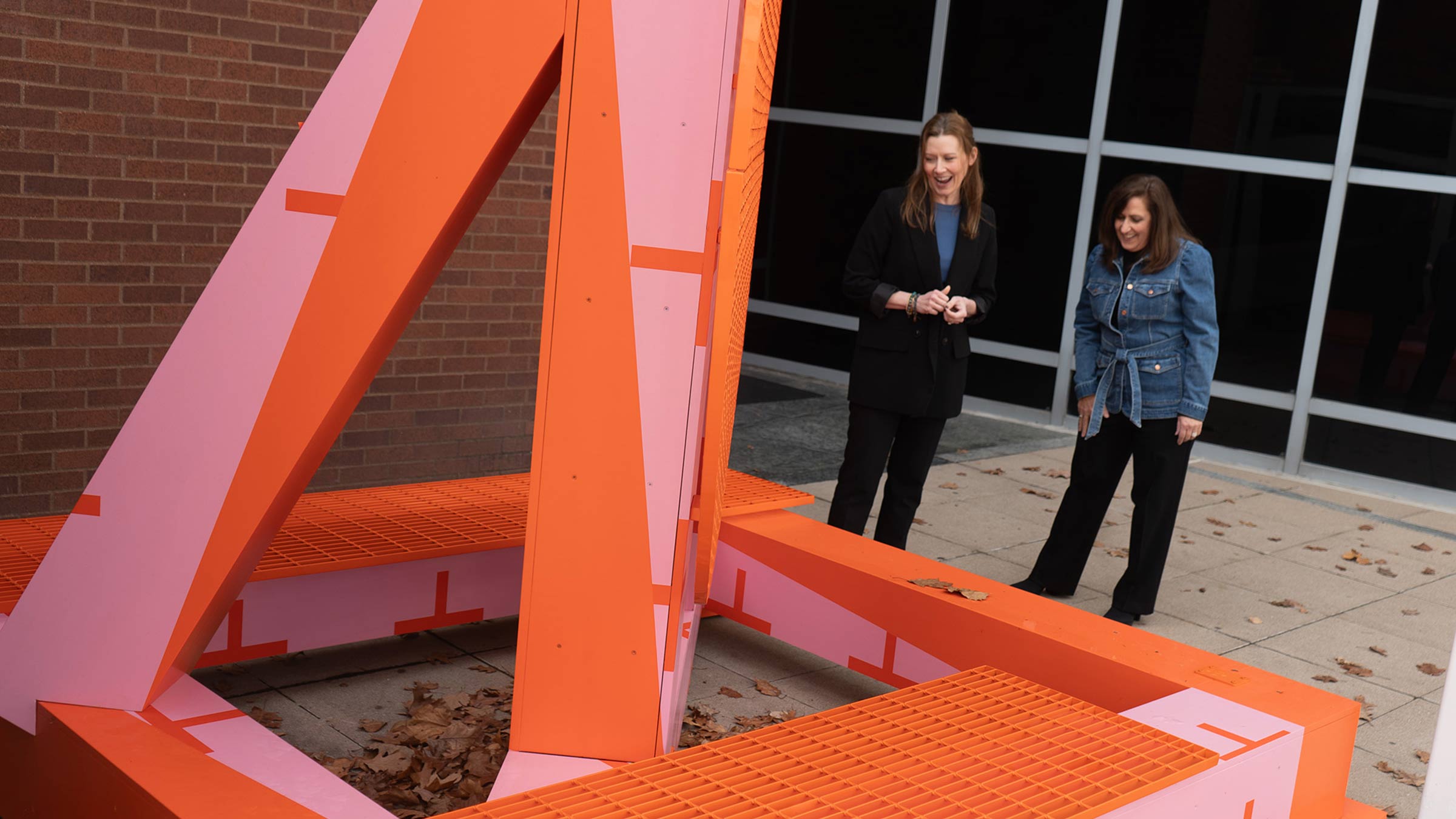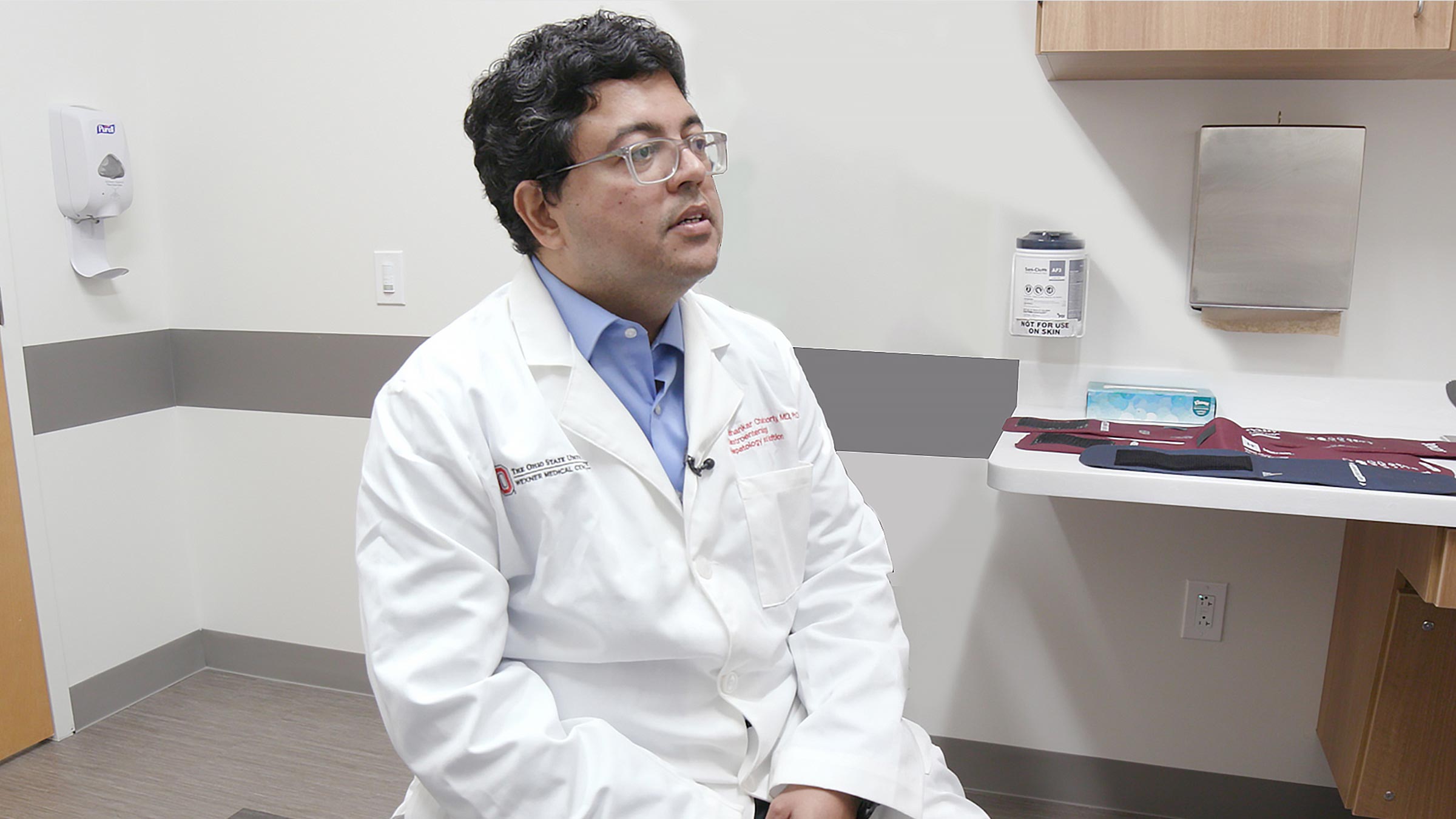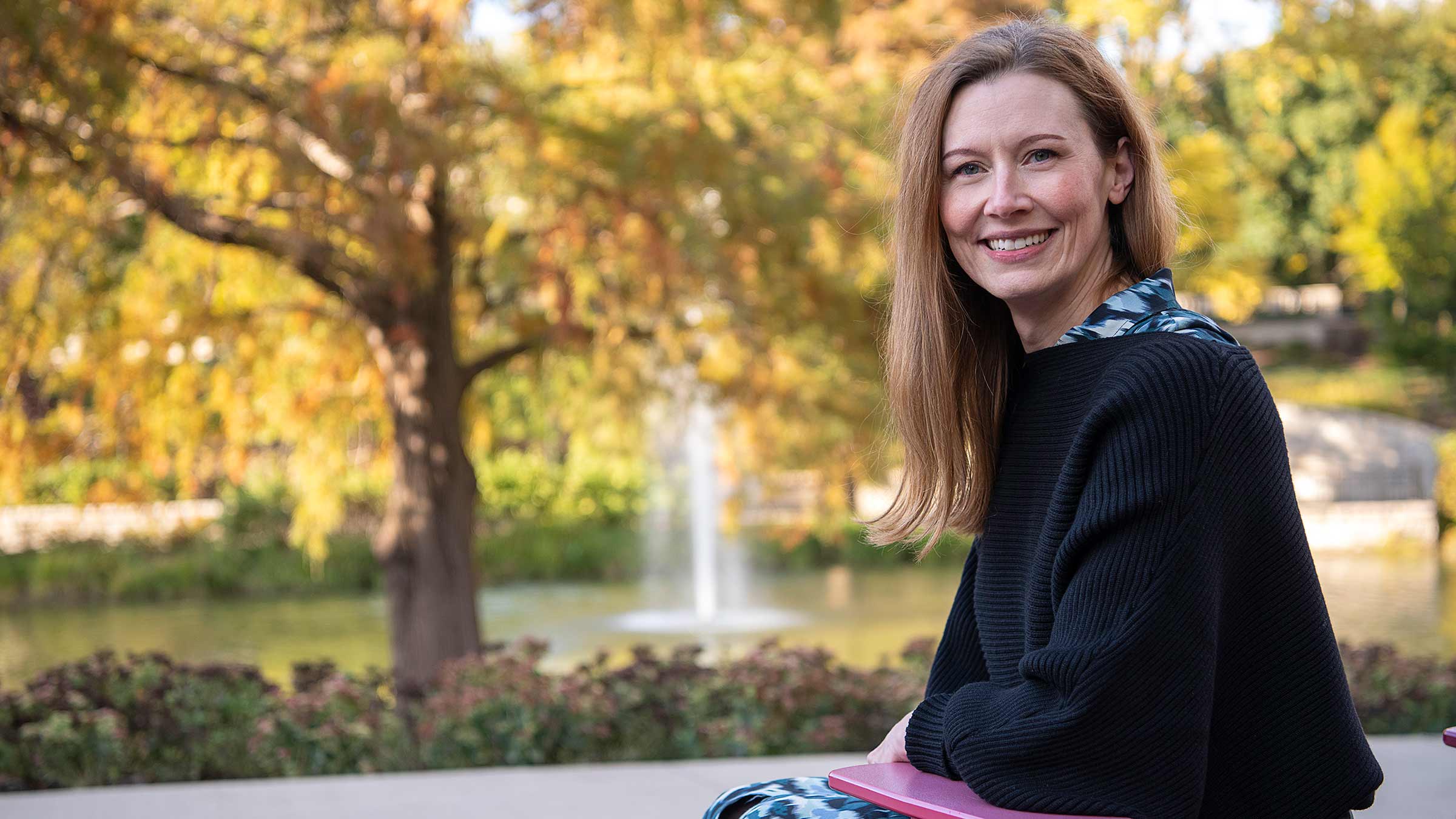
When Kim was looking for a way to help manage the symptoms of her gastrointestinal illness, she knew she wanted a plan that would go beyond basic clinical care.
“I didn’t want to just take a pill. I didn’t want to just have some surgery as the way to kind of treat this. I really wanted to have a plan that was going to be more holistic,” she says.
The one she found at The Ohio State University Wexner Medical Center did more than address her GI issues: It also brought her a sense of comfort, belonging and relief.
How the partnership works
Kim participated in Project Gather, an eight-week pilot program that helps treat patients suffering from GI symptoms by bringing them to the Wexner Center for the Arts to engage with exhibits in a group setting. The idea is to help alleviate stress and bring about a better sense of well-being, which can help calm an underlying trigger of chronic illness.
“It is very important to recognize that chronic illness comes with underlying stress,” says Subhankar Chakraborty, MD, PhD, a clinical assistant professor of Internal Medicine at The Ohio State University College of Medicine and a gastroenterologist at the Ohio State Wexner Medical Center. “Stress drives the severity of chronic illness, and with the tremendous shortage that we have of access to timely mental health care, I think it's important to have these kinds of activities that foster creativity.”

The program brings patients together at the Wexner Center for the Arts to engage with pieces on display, journal about them and share their thoughts and feedback with other GI patients. In doing so, it also helps treat a lesser-known symptom of chronic illness: isolation.
“They're often in a constant sense of almost like a fight or flight response because they’re worried that something they will eat or drink will trigger their symptoms,” says Dr. Chakraborty, who collaborated with the arts center on the project. “They feel socially isolated because they can’t mingle with others and eat with others at the table.”
Teaming up with the Wexner Center for the Arts
To address this, Dr. Chakraborty partnered with Tracie McCambridge, director of art & resilience at the Wexner Center for the Arts (the Wex). McCambridge has a history of using art to help address wellness — she founded the Art & Resilience program at the Wex in 2013, with the intention of using gallery and performance spaces to help those suffering from the effects of trauma.

The loneliness aspect of chronic illness was a major factor that made McCambridge eager to participate in the pilot program.
“The US Surgeon General has stated that loneliness is actually a health crisis in our country,” McCambridge says. “And, so, it’s my hope that programs like this that bring people together, help to connect them through their similar lived experiences or identities, but connect them in a really fun and engaging and stress-free way.”
For Kim, the relief that the program brought her was critical. Before getting treatment, she was in so much pain that she could not sleep lying down. The combination of clinical care and Project Gather has helped her manage her symptoms.
“I loved the idea that my doctor was prescribing me to go visit a museum in the middle of a work week,” Kim says.
“That sort of gave me permission to go explore something like that, where in my normal busy day-to-day life, I probably wouldn't have considered something like that otherwise.
“That little bit of guidance and suggestion that I got from my physician, that said ‘No, this is going to be good for you, this is part of your treatment,’ for me, that was magical.”
For Kim, the relief that the program brought her was critical. Before getting treatment, she was in so much pain that she could not sleep lying down. The combination of clinical care and Project Gather has helped her manage her symptoms.
“I loved the idea that my doctor was prescribing me to go visit a museum in the middle of a work week,” Kim says.
“That sort of gave me permission to go explore something like that, where in my normal busy day-to-day life, I probably wouldn't have considered something like that otherwise.
“That little bit of guidance and suggestion that I got from my physician, that said ‘No, this is going to be good for you, this is part of your treatment,’ for me, that was magical.”






